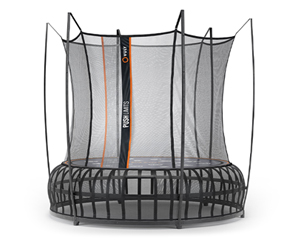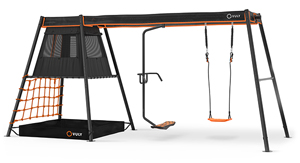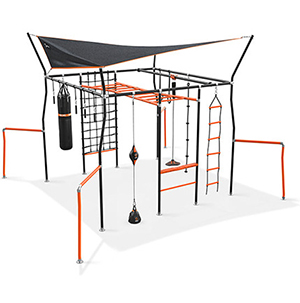BMX refers to Bicycle Moto Cross, a unique type of bike culture. The origins of BMX bike riding comes from kids imitating motocross on dirt tracks in Sothern California. This occurred alongside the mountain bike movement, which also started becoming big in the late 1970's.
Although BMX riders were focused on racing and jumping, urban BMX riders had some different ideas. They weren’t able to take advantage of motocross-style ramps, and instead, a culture of tricks was born, which was later coined BMX Freestyle.
Despite the kids growing older, the bikes retained their kids BMX bike look, as this made them lighter and better suited for BMX stunts.

BMX Freestyle
BMX Freestyle, as opposed to BMX Racing, is the umbrella term used to describe riders that participate in extreme stunt riding. In this form of riding, style/aesthetics, skills, and creativity are emphasised. The spectacular riding is fun to watch and can is considered a form of art by many in the community.
Freestyle riders gather and ride at a diverse array of different locations both competitively and for leisure. The following are considered subcategories of Freestyle BMX riding.
BMX Street
BMX street riding is the most popular form of BMX freestyle riding. Riders improvise and find unusual and often daring set ups! From handrails to stairs and curbs, street riders find opportunities anywhere and everywhere.
Often in places like New York, street BMX riders can be seen riding alongside cars, doing wheelies, and swerving around pedestrians and cars alike. Some riders even purposely remove the front wheel so that they’re forced to keep the front of the bike in the air - crazy huh!?
Signature tricks include: wheelies, barspins, tailspins
BMX Park
BMX park riders gather at skate parks, where they share the space with skateboarders, rollerbladers, and scooter riders. Skate parks have a ton of awesome accessories, ramps, and pipes that provide great opportunities for riders to practice their skills.
Ramps offer an awesome opportunity for high-level skills like flips and spins.Higher-level riders tend to practice skills into foam pits before attempting them at the park.
Signature tricks include: ramp riding, flips, tailspins
BMX Dirt
This is the original branch-off from Bicycle Moto Cross. It’s changed quite a bit since its origin, but still embodies that same thrill of riding hard, jumping ramps, and sometimes crash landing after those big tricks.
The dirt tracks are often hastily, and sometimes illegally built on vacant land. This only increases the adrenaline when riders power down their handmade tracks. More recently legal parks have started popping up, and these are usually much more sophisticated and allow for smoother and faster riding.
Signature tricks include: no handers, turn downs, spins
Flatland BMX
These riders complete all their tricks without any additional ramps or rails. This style was inspired in towns where riders had little to ride on. They started creating tricks out of thin air, without the need for any parks or tracks.
These are some of the most talented riders in the sport, and require immense balance, skill and precision to pull off. Often these riders also take their skills to the streets and make a show of creatively moving through traffic.
Signature tricks include: manuals, nose manuals, bike varials
The Popularity Of BMX Riding By Country
BMX riding is popular all over the world, and has even made it into the Olympics. The graph below summarises the popularity of BMX based on the number of BMX parks per country.

















































